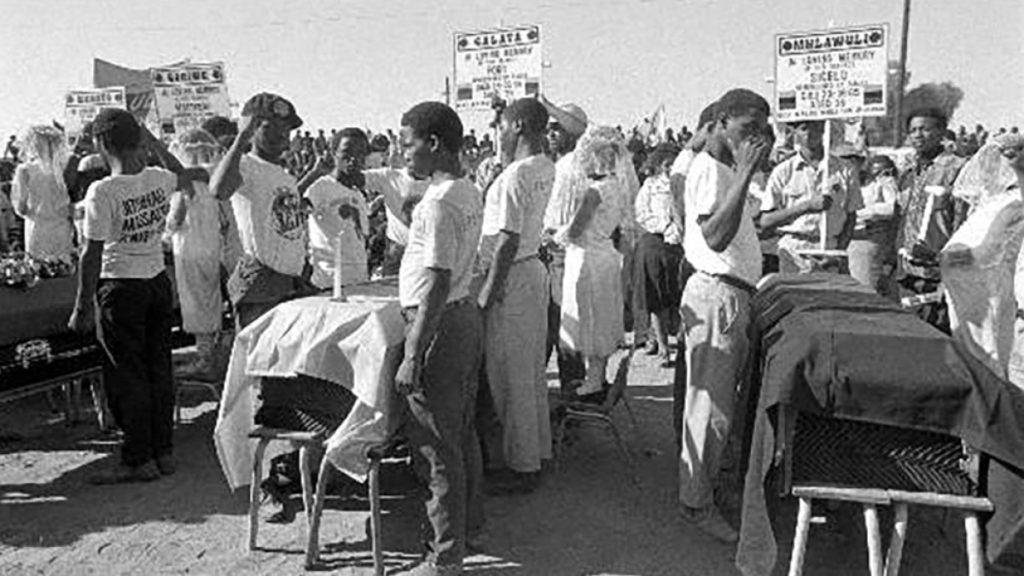The families of anti-apartheid activists, including the renowned “Cradock Four,” are pursuing a landmark $9 million lawsuit against the South African government for its alleged failure to properly investigate and prosecute apartheid-era crimes. This legal action, filed in the High Court in Pretoria, brings together 25 survivors and victims’ families, united by their shared experience of unresolved justice and a persistent quest for truth and accountability. The case centers on the government’s alleged suppression of inquiries and failure to prosecute perpetrators, even after the Truth and Reconciliation Commission (TRC) denied amnesty to those implicated in the Cradock Four’s murders. The lawsuit underscores the enduring pain and frustration felt by families who believe the government, despite transitioning to democratic rule under the African National Congress (ANC), has betrayed their trust and allowed those responsible for heinous crimes to escape justice.
The Cradock Four – Matthew Goniwe, Fort Calata, Sparrow Mkhonto, and Sicelo Mhlauli – were prominent activists challenging the oppressive apartheid regime in the Eastern Cape town of Cradock. Their work focused on addressing the dire conditions faced by Black South Africans, including inadequate healthcare and exorbitant rents. Their activism drew the attention of apartheid security forces, leading to constant surveillance, arrests, and attempts to disrupt their organizing efforts. In June 1985, the four were abducted at a roadblock, brutally assaulted, and their bodies burned and scattered. Their deaths sparked widespread outrage and intensified the struggle against apartheid. While initial inquiries attributed the killings to “unknown persons,” leaked documents later revealed the involvement of the Civil Cooperation Bureau, a government death squad.
The TRC, established in 1996 to address apartheid-era atrocities, investigated the Cradock Four case and denied amnesty to six implicated police officers, citing their failure to provide a full disclosure of the events. This decision initially brought hope to the families, who believed prosecutions would follow. However, successive ANC governments, from Thabo Mbeki to Cyril Ramaphosa, failed to bring the perpetrators to justice. All six accused officials have since died, leaving the families with a profound sense of betrayal and unanswered questions. The lawsuit alleges that this inaction was not merely a matter of incompetence, but rather a deliberate suppression of investigations, potentially stemming from a secret agreement between the post-apartheid government and the former white minority government to avoid prosecutions.
The new lawsuit expands beyond the Cradock Four case to encompass other unresolved apartheid-era crimes, highlighting a systemic failure to address past injustices. The plaintiffs are seeking “constitutional damages” for the egregious violations of their rights, arguing that the government’s inaction has denied them justice, truth, and closure. The damages, if awarded, would serve as an alternative form of justice and fund further investigations, memorials, and public education initiatives related to apartheid-era crimes. The lawsuit also calls for the establishment of an independent commission of inquiry to investigate alleged government interference in the TRC process under the Mbeki administration.
The case has ignited significant public interest and sparked renewed debate about the ANC’s handling of apartheid-era atrocities. Critics argue that the government has been suspiciously lenient towards perpetrators, pointing to instances of pardons and paroles granted to convicted criminals. The opposition Economic Freedom Fighters (EFF) party has accused the ANC of freeing assassins and failing to provide answers and closure to families of victims. The inclusion of other unresolved cases in the lawsuit, such as the disappearance of Nokuthula Simelane and the Highgate Hotel Massacre, strengthens the argument that a pattern of inaction and suppression has prevented justice for numerous victims.
The lawsuit represents a crucial test of South Africa’s commitment to transitional justice and accountability. It challenges the narrative of reconciliation and raises uncomfortable questions about the compromises made during the transition to democracy. The families’ pursuit of justice, decades after the end of apartheid, serves as a powerful reminder of the enduring legacy of violence and the ongoing struggle to confront the past. The outcome of this case could have far-reaching implications for the country’s efforts to grapple with its history and build a truly just and equitable society. The families’ demand for an independent inquiry into alleged government interference underscores the need for transparency and accountability to ensure that the truth about these crimes is finally revealed and those responsible are held to account, even if posthumously. The case also highlights the importance of addressing the systemic failures that allowed these injustices to persist for so long and ensuring that such failures are not repeated in the future.

